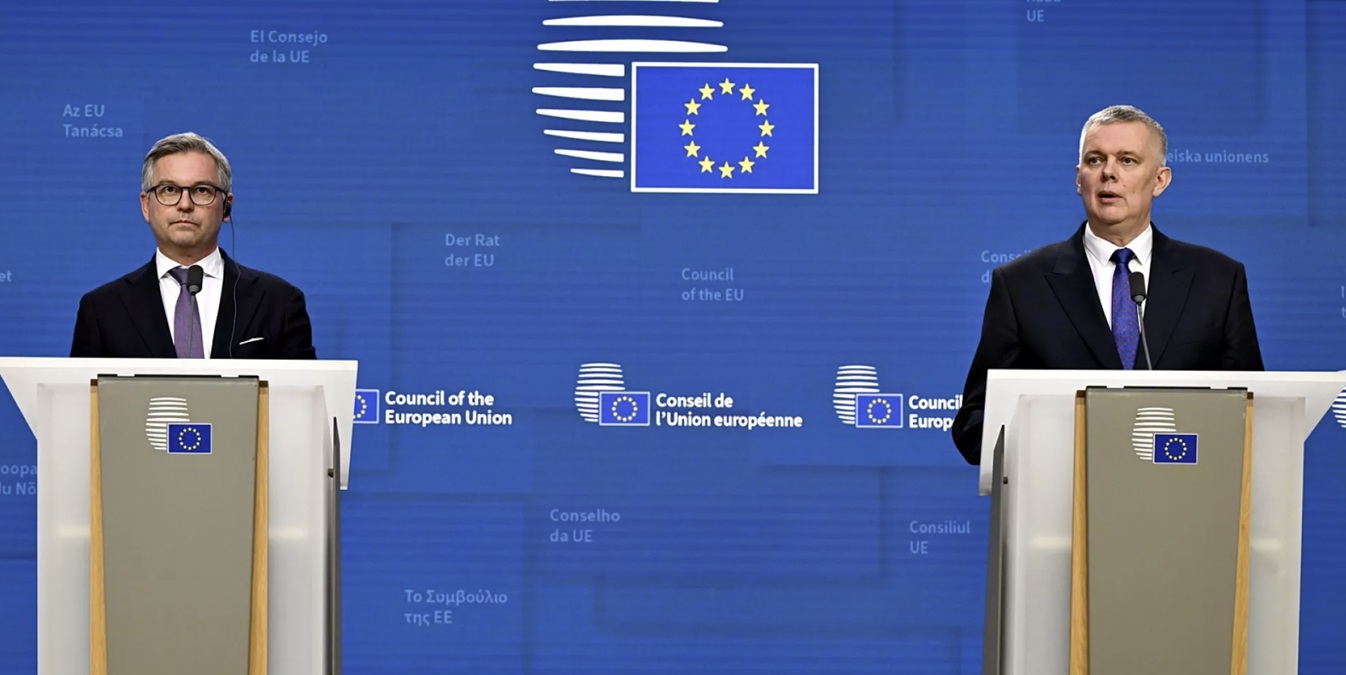Published
3 months agoon
By
James
The European Commission has remained notably silent following Poland’s firm refusal to implement the Pact on Migration and Asylum. This legislative framework, hailed as a historical achievement, aims to streamline the management of asylum seekers across EU member states through a cooperative approach. However, Poland’s defiance has cast doubt on the pact’s enforcement and the European Union’s ability to ensure compliance among its members.
The tension unfolded on Wednesday evening during a meeting of EU home affairs ministers, chaired by Poland’s presidency of the European Council. Tomasz Siemoniak, Poland’s Minister of Interior, was explicitly asked whether Poland would adhere to the migration pact, which comprises five interrelated laws carefully negotiated over the past mandate.
His response was unequivocal: implementation “was not possible.” Siemoniak reiterated the arguments put forth by Polish Prime Minister Donald Tusk, who had previously emphasized Poland’s unique situation. In early February, Tusk informed European Commission President Ursula von der Leyen that Poland faces extraordinary migratory pressures due to the instrumentalization of migration by Belarus at its eastern border and the significant influx of Ukrainian refugees fleeing Russia’s war.
“Poland will not accept any burdens related to the relocation mechanism. This is not an ideological debate,” Tusk asserted. “If somebody says that Poland is expected to shoulder an additional burden, irrespective of who says that, my response is Poland will not accept an additional burden. Full stop.”
At the heart of the Pact on Migration and Asylum is a “mandatory solidarity” mechanism, offering member states three choices: relocating a set number of asylum seekers, making financial contributions, or providing operational support such as personnel and equipment. The system is designed to relocate 30,000 asylum seekers annually, with financial contributions reaching €600 million.
From the beginning of negotiations, Poland, alongside Hungary, firmly opposed this solidarity mechanism, arguing that it would compel them to accept migrants against their will. However, the pact provides alternative options, including exemptions for nations experiencing exceptional migratory pressure, which seemingly addresses Poland’s concerns. Nonetheless, Polish officials have remained steadfast in their opposition.
On Wednesday, Siemoniak reaffirmed Poland’s position: “We have presented the reasons why the implementation of the pact is not possible. In particular, as Prime Minister Tusk has mentioned, when it comes to Poland’s security.”
While rejecting the pact, Poland has expressed willingness to support alternative migration policies, including enhanced deportation procedures and measures against instrumentalized migration. However, these proposals fall short of full compliance with the comprehensive pact.
Despite Poland’s outright refusal, European Commissioner for Internal Affairs and Migration, Magnus Brunner, refrained from taking a firm stance. Standing alongside Siemoniak, Brunner neither challenged Poland’s rejection nor indicated any immediate steps toward legal enforcement. Instead, he praised Poland’s active role in areas such as deportations and migration weaponization.
This subdued reaction contrasts sharply with Brunner’s earlier commitments. During his confirmation hearing in November, he pledged to take legal action against member states refusing to implement EU law. However, on Wednesday, he avoided any explicit commitment to holding Poland accountable.
The Migration Pact is legally binding for all 27 EU member states and is scheduled to take effect in 2026. Ahead of its implementation, the European Commission has requested national action plans from member states to outline how they intend to comply with the new regulations and what additional resources they require.
As of now, Poland has not submitted its plan.
The Commission’s continued silence raises pressing questions about the enforceability of the Migration Pact. If Poland’s defiance goes unchallenged, it could embolden other member states to reject aspects of EU law, potentially undermining the bloc’s ability to implement collective policies effectively. As the deadline for implementation draws closer, all eyes remain on Brussels to see whether legal action or political negotiations will shape the final outcome of this contentious issue.


Germany’s New Coalition Government Unveils Stricter Immigration and Citizenship Policies


Mass Protests Erupt in South Korea Over President Yoon’s ImpeachmentAFP


EU Representatives Agree on New Driving License Rules


Erdogan Calls Turkey Protests ‘Evil’ as Unrest Escalates


Former U.S. Attorney Jessica Aber Found Dead at 43


UN Reduces Staff Presence in Gaza Due to Security Concerns


US Government’s Security Blunder: Journalist Accidentally Invited to Secret Chat










